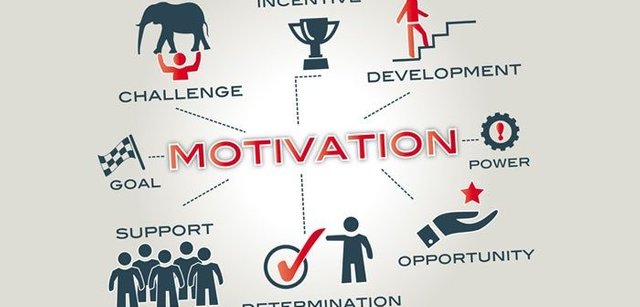Motivators, more commonly known as movers, catalysts, or kick-in subjects. These individuals make an incredible contribution to the success of any goal you have in life. We all have them, but sometimes they are stored away and unused. Motivators create drive and momentum. A person who doesn't use a motivator will find their results suffer because it is not there to pull them through those tough times. You must harness your own power and use it to create your own motivation.

Motivators are intangible intangibles that drive an individual to strive towards a desirable result. Motivators most often are the fuel that drives a vehicle. Without an intrinsic motivation, an individual cannot drive the car into the ditch. Motivators include personal recognition, personal enrichment, meaningful work, and internal motivation.
In business, many types of motivators are used to help increase the performance and quality of employees performing a particular task. Typical workplace motivators include recognition, bonuses, praise, and encouragement. Employees recognize the task completion for increasing their salary, promotion, or job security. A simple way to increase the recognition of employees is to give a bonus to each significant employee who is more productive than average. Employees also like to be rewarded with special recognition items such as dinner tickets, gifts, vacations, or time off. Company managers create numerous methods to reward employees, including pay raises and promotions.
Motivational speakers use various types of motivators to help individuals overcome personal obstacles, such as overcoming shyness to engage in public speaking. Business employers use motivators to motivate their sales representatives to increase the number of customers. Motivational lecturers, coaches, and consultants are able to identify the specific areas of an individual's personality that may hinder productivity. Once identified, these motivators can be used to help the individual overcome their problems.
Altruistic motivators are those that cause the greatest happiness and fulfillment in others. This motivator is related to the self and relates to helping others achieve their goals. The more you are motivated by altruistic reasons, the more you are willing to help the less you are willing to take the risk. Employees who are motivated by altruistic motives, such as a desire to help people, make greater contributions to their organizations and perform better.
Recognition motivators may be in the form of a raise or a bonus. Employees who are able to receive recognition for a job well done are more likely to stay with an organization and increase their compensation. Motivations, on the other hand, may be in the form of a pat on the back, a hug on the back or even a funny look from a manager. Employees who are motivated by recognition will be willing to go above and beyond the call of duty to reach a supervisor.
The other three basic needs of humans have to be met in order for them to be happy and satisfied. These basic needs include security, food and shelter. In order for these basic needs to be met, employees must be able to access them when they need them. These motivators can also be financial motivators. Employees who are motivated by financial incentives are likely to ask for raises or bonuses.

Motivators come in all different shapes and sizes. When it comes to businesses, companies and organisations, the most powerful motivator can vary from individual to individual. Every company has its own motivators and knowing which motivator works best for your team members can be the difference between a motivated group of workers and a motivated group of team members. If you are looking to improve employee motivation in your workplace, Jordan-Evans is one of the options that can help.